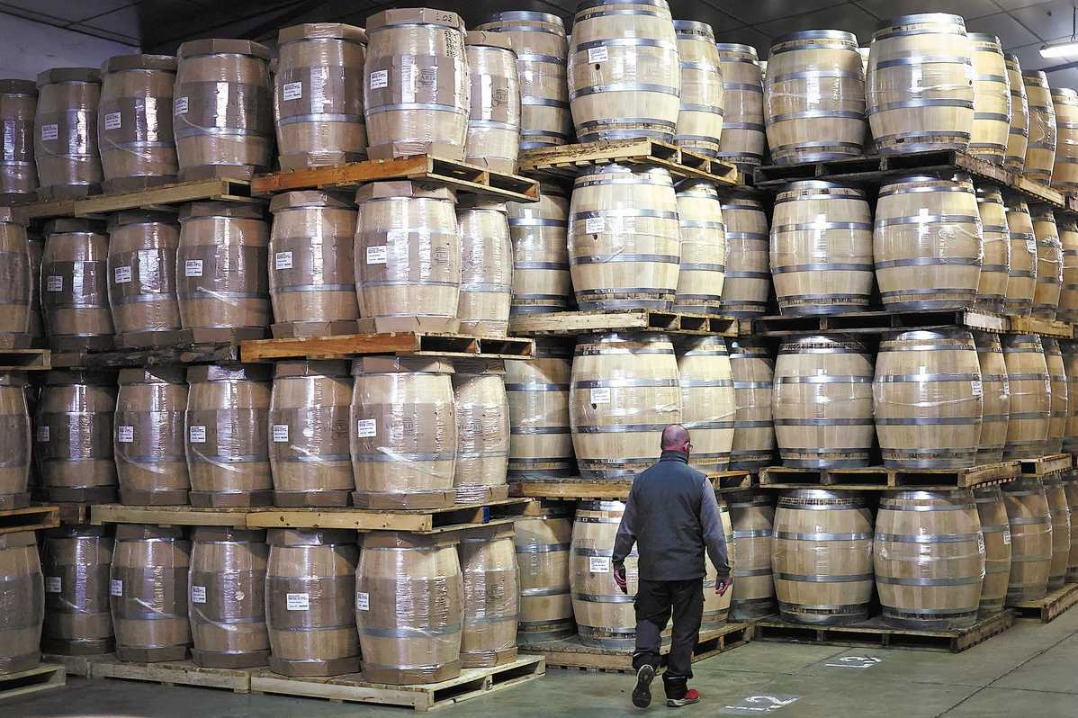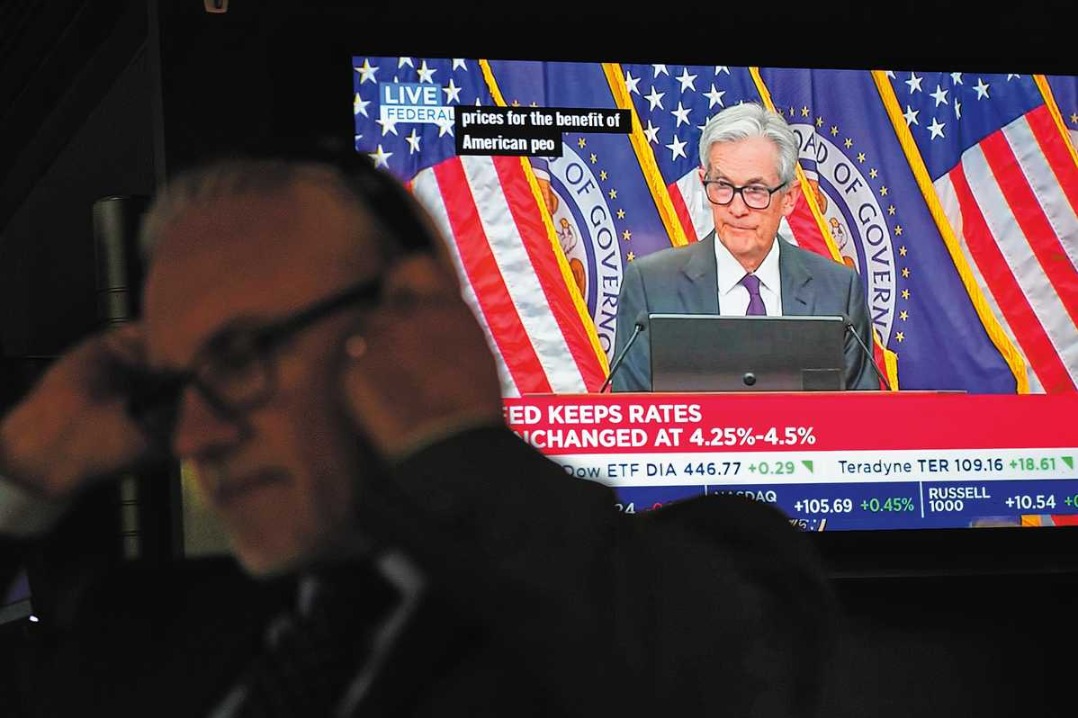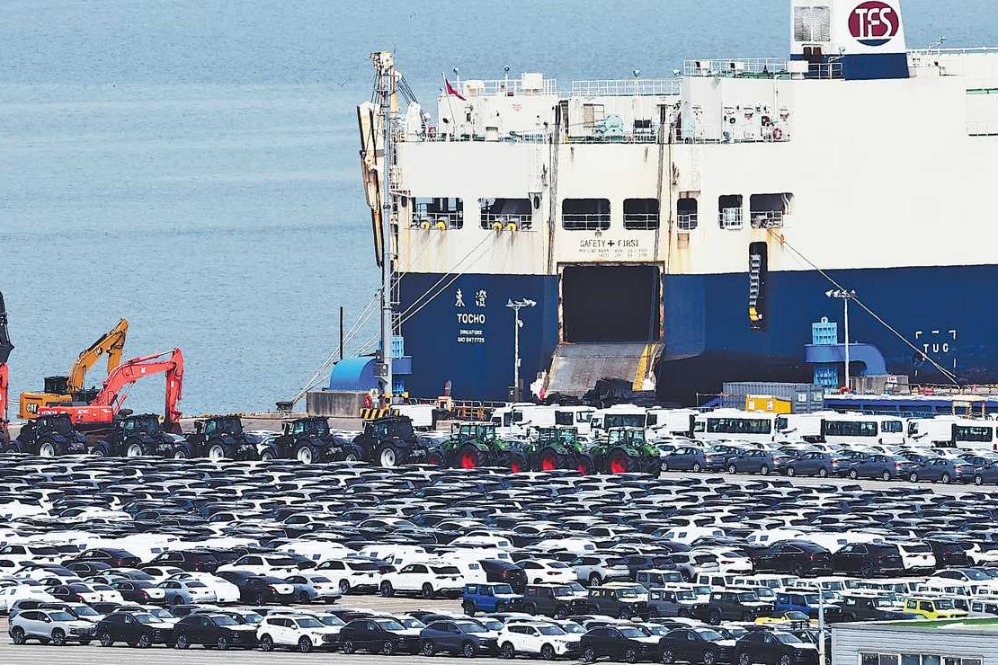Jobless claims decline, US Dow rises in mixed early trading

Initial jobless claims totaled 2.438 million last week – the seventh straight week of decline since the peak of 6.9 million claims filed in late March, the US Labor Department reported Thursday.
About 38.6 million workers have filed unemployment claims since the government-ordered lockdown intended to curb spread of the virus shut down the economy.
Analysts surveyed by Dow Jones expected 2.4 million new claims to be filed last week.
Georgia reported the biggest drop in new claims, a decline of 66,224 from the previous week. California reported the largest gain, an increase of 33,448.
Georgia is reopening its economy while California remains locked down.
"The states may be opening back up, but the labor market is still closed for millions across America and the loss of the income and spending of those without jobs will be a considerable headwind for this economic recovery, Chris Rupkey, chief financial economist at MUFG Union Bank, told CNBC.
The rate of increase in new claims has leveled off, but has not yet declined sharply.
A recent household survey conducted by the US Census Bureau found that nearly 50 percent of adults said they or a family member had lost their job since mid-March. About 40 percent of respondents expected the loss to continue over the next month.
Nicholas Bloom, an economist at Stanford University and co-author of the coronavirus pandemic's effects on the labor market, believes that 42 percent of recent layoffs will result in permanent job loss.
"I hate to say it, but this is going to take longer and look grimmer than we thought," he told The New York Times.
Hundreds of thousands self-employed and contract "gig" workers now received unemployment benefits through a temporary coronavirus program, but those claims aren't reflected in the Labor Department's weekly jobless claims report. However, the claims show up in totals compiled by the states.
As of Tuesday, 43 states were making payments to self-employed and contract workers, the Labor Department said.
"The pandemic unemployment assistance program is giving us a view into a segment of the workforce that's harmed during a recession that we don't typically get," Dante DeAntonio an economist at Moody's Analytics, told The Wall Street Journal.
"It gives us a better handle on the scope of what's happening."
In early trading Thursday, the Dow Jones Industrial Average rose 80.92 points, or 0.33 percent, to 24,656.82. The S&P 500 gained 0.19 percent. The Nasdaq Composite rose 0.23 percent.
On Wednesday, the Dow gained 369.04 points, or 1.52 percent, and closed at 24,575.90. The S&P 500 rose 1.67 percent. The Nasdaq Composite added 2.08 percent.
On Thursday, West Texas Intermediate crude futures, the gauge for US prices, rose 3.02 percent to $34.50 a barrel. Brent crude, the worldwide benchmark, added 3.22 percent to $36.89 a barrel.
The price of oil is an indicator of future economic activity. Rising prices suggest traders see strong demand ahead. US oil futures briefly turned negative during the worst of the coronavirus outbreak as demand for fuel collapsed and storage facilities filled up.
Production Halted
Ford temporarily halted production at factories in Illinois and Michigan Wednesday, underscoring the risks of resuming production during the coronavirus outbreak.
Workers at the Chicago assembly plant were send home for the second day in a row late Wednesday after a seat –maker in Hammond, Indiana, halted production amid health concerns.
Ford also closed its pickup truck production line in Dearborn, Michigan after a worker tested positive for Covid-19. Work is expected to resume today after the plant is disinfected.
US automakers, including General Motors and Fiat Chrysler, have worked with the United Auto Workers union to assure worker safety through social distancing, the installation of Plexiglas barriers and regular cleaning.
In early trading Ford gained 1.46 percent. General Motors slipped 0.12 percent. Fiat Chrysler added 2.76 percent.
Retailers Hit Hard
On Thursday, Macy's said it expects first-quarter revenue to decline by as much as 45 percent and losses may exceed $1 billion due to the coronavirus outbreak.
The company said it doesn't expect to report first-quarter results until July 1 due to the coronavirus outbreak. However, Macy's expects to have "sufficient liquidity" to resume operations when the lockdown ends.
"We expect business to recover gradually," CEO Jeff Gennette said in a statement.
In early trading, Macy's stock gained 1.18 percent.
Retailers have been hit hard during the lockdown.
Neiman Marcus, J.C. Penney and Stage Stores have filed for bankruptcy protection and seek to reorganize their debts.
Earlier this week, Khol's said first-quarter sales were down 44 percent.
Nordstrom, scheduled to report earnings next week, has announced plans to permanently close 16 stores.
































